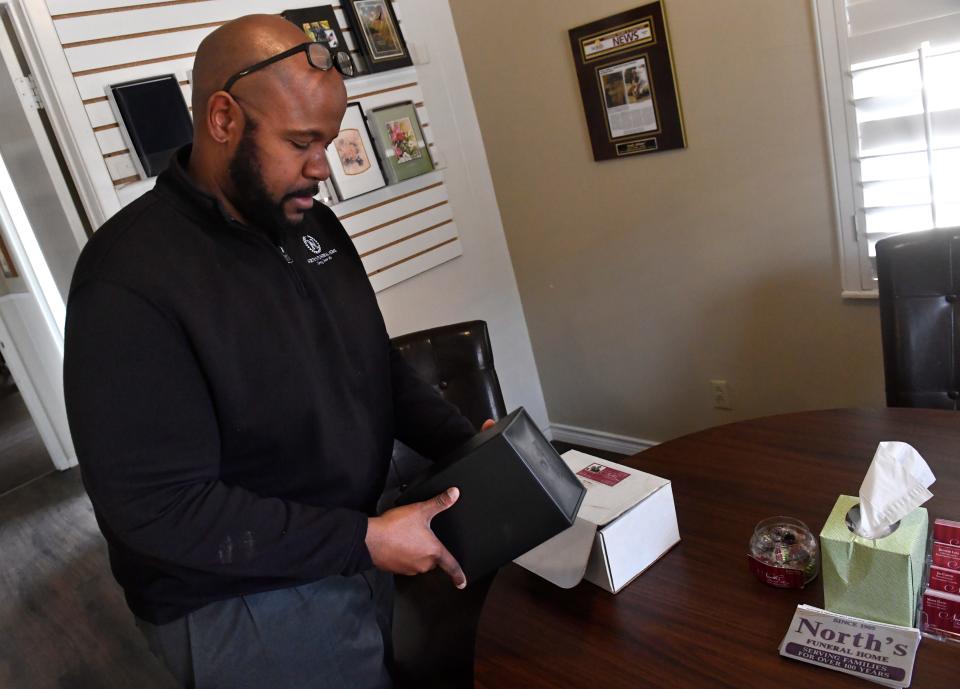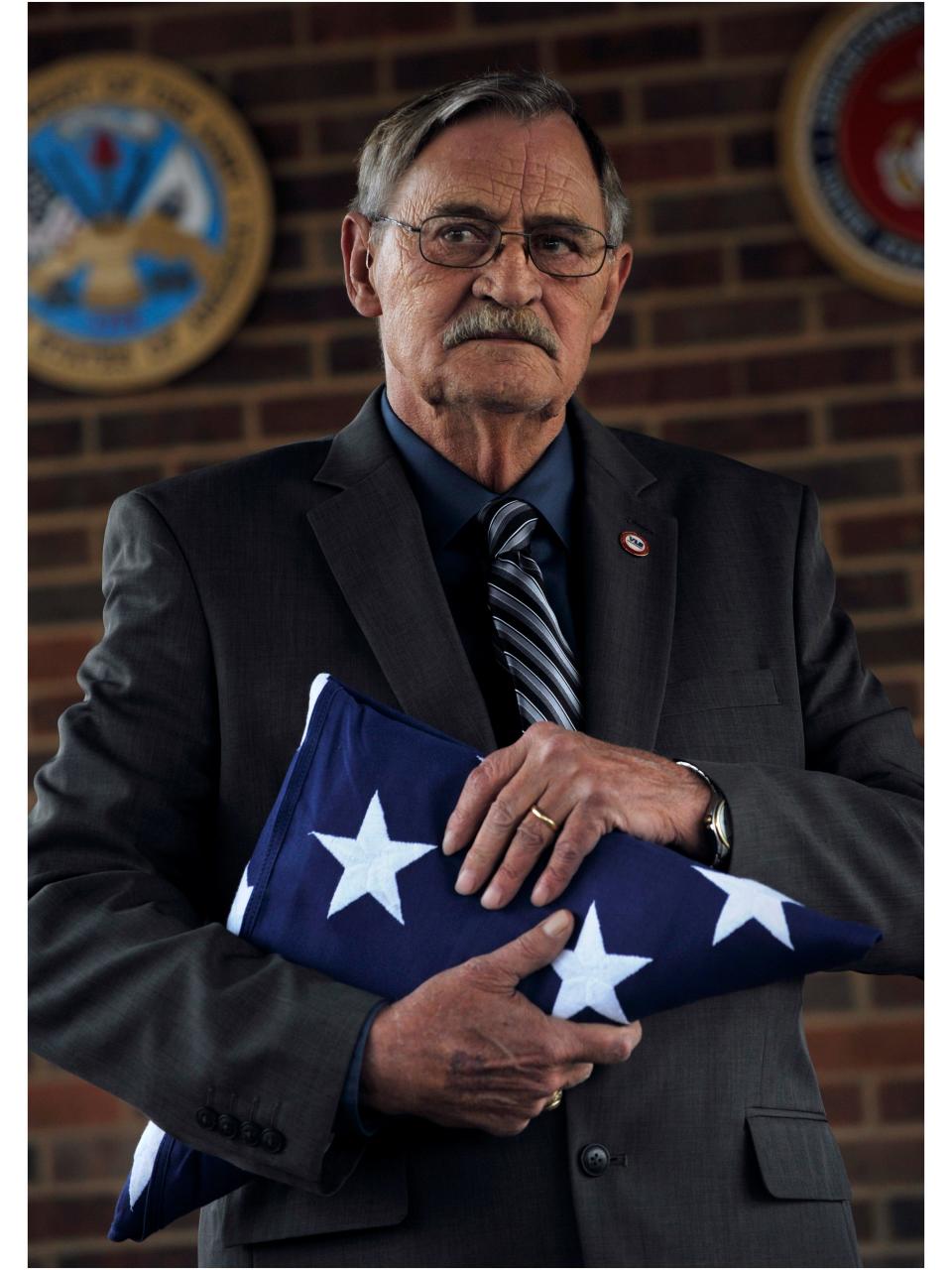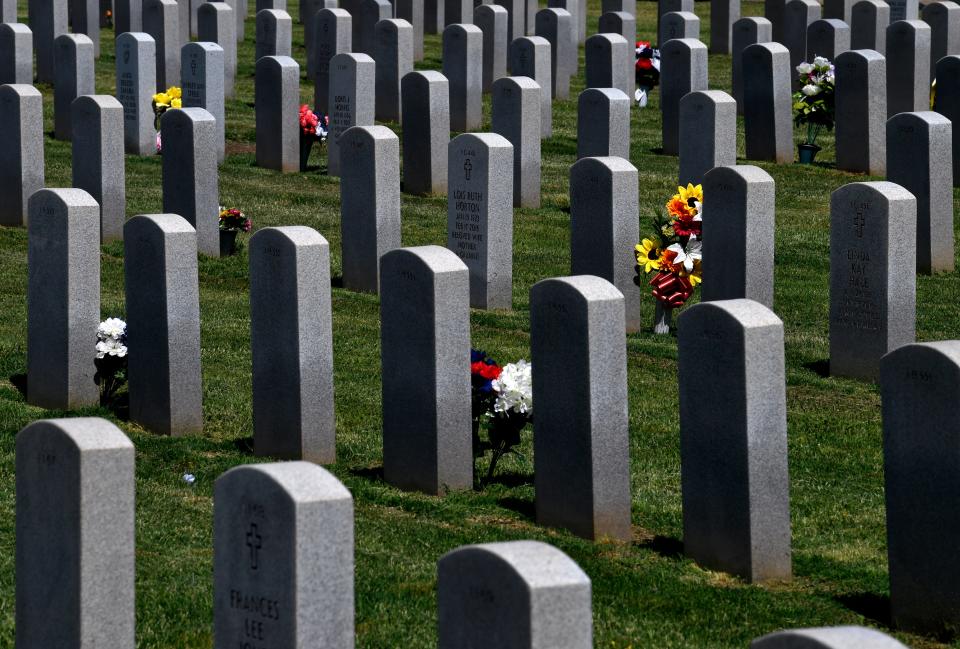Taylor County funds for indigent cremations and burials grant dignity, officials say
When an indigent burial – also known as a “pauper” burial – comes into his funeral home, Elliott Kirk, owner of North’s Funeral Home in Abilene, said their care is an important task.

The people involved are often transients, he said.
“They may have family in another state, or far away,” he said. “Sometimes, a family may not want anything to do with it because of something that’s happened in the past.”
No matter what their story, though, they are people, he said.
And that's among the reasons Taylor County offers cremation or burial for indigent persons through its taxpayer-funded Indigent Cremation and Burial program.
Roseann Seelke, director of social services for Taylor County, said the program, which does not rely on grants, is important because “(we) believe that everyone, regardless of financial class or ability to pay, should have their remains cared for in dignity.”
State requirements
Indigent burials are a responsibility placed on counties, as mandated by the Legislature, Taylor County Commissioner Chuck Statler said.
The Legislature requires counties to allocate a minimum of 8% of their budget for indigent health care, Statler said.
“And pauper burials fall under that umbrella,” he said.
According to the state’s Health and Safety Code, the commissioners court of each county is required to provide for the disposition of a pauper’s body.
The county has a fiscal year 2022 budget of $37,000 for burials and cremations, “which we are on track with,” Seelke said.
“We average approximately four indigent dispositions per month,” she said. “Some months are busier than others, but for the most part, we maintain this average.”

Covering costs
The county pays around $750 per cremation or burial, Seelke said.
Cremation is generally the first choice.
But county policy allows for burial for premature or stillborn infants and those with a specific religious preference, she said.
Indigent people who are veterans can be buried at Texas State Veterans Cemetery at Abilene, She said.
According to state code, if a county discovers cash in an indigent person’s possession, it may be used to pay costs incurred.
If any cash remains, it is placed in trust.
Anyone having claim to the money can collect it no later than the first anniversary of the date of disposition.
Money placed in trust but not claimed may be transferred to the fund counties create to pay for costs in disposing the bodies of paupers and administering the county’s body disposition activities.
Important service
During a recent meeting, county commissioners cemented an agreement with North’s to be the regular provider of indigent burials and cremations.
Previously, there was a rotation of local funeral homes that provided the services, Kirk said, with the two primary providers most recently being North’s and Girdner Funeral Home.
Recently, the county determined it would be easier to use one primary location for those services, he said.
North’s has had a good relationship with the county, Seelke said.
“This is not to say that other funeral homes do not show the same care,” she said. “It’s that North’s has been a constant accepter of pauper individuals and truly shows their passion for the field, their decedents and families, and the citizens of Taylor County.”
The county left a clause in its agreement allowing other funeral homes to follow the cremation and burial policy, should family members express a preference, Seelke said.
“We would only know if the decedent had a funeral home of choice if requested by family or friends,” Seelke said.
Those burials or cremations will be on an “case-by-case” basis, with Norths’ being the primary provider, she said.
Place of rest
Jimmy Defoor, on-site representative for the Texas Veterans Land Board, said that if a person can be identified as a veteran, but no family members can be found, that's known as an "unattended" funeral.

"Believe me, we really try (to find family)," Defoor said. "A family has a right to know."
Defoor said 13 unclaimed or unaccompanied veterans are buried in Abilene's cemetery, out of more than 3,300 burials.
"We don't see it a lot — usually some family can be located," he said.
At that point, the family has the option to seek burial in a local cemetery or take their relative's remains home.
"We (do) preach to them that it's free out here," Defoor said.
If family can't be located, there is no special designation for such veterans on their markers, he said.
"That wouldn't be fair to the veteran," Defoor said.
In fact, it's part of the point that unattended veterans are given the same dignity at the cemetery as any other, he said.
"They've earned that, and we're going to make sure that they get it," Defoor said. "They get military honors, the same thing any other veteran would get. The whole works."'
Always searching

A key part of the ceremony is a flag presentation, Defoor said.
Normally, that would go to a spouse or a veteran's child.
But in the case of an unattended funeral, the flag goes to Defoor.
"We keep them here, just in case we do locate some family at a future time," he said.
It's far from a lost cause.
Defoor said he has managed to track down two out of the 13 people at buried in Abilene's cemetery.
"One had a daughter out in California," he recalled. "... Being an old police officer, I don't give up on that. I keep looking."
Defoor said the cemetery has had a good relationship in general with local funeral homes.
"We deal with all of them on a daily basis," he said. "They understand, and they're just a patriotic as we are."
Dignity for all
"Everyone is entitled to a final disposition with dignity," no matter what one's background, Statler said, which makes the county's role in indigent burials important.
Kirk agreed.
“It’s a service that everyone needs,” he said. “And I think that the county providing that service is wonderful.”
Brian Bethel covers city and county government and general news for the Abilene Reporter-News. If you appreciate locally driven news, you can support local journalists with a digital subscription to ReporterNews.com.
This article originally appeared on Abilene Reporter-News: Indigent cremations and burials grant dignity, local officials say

